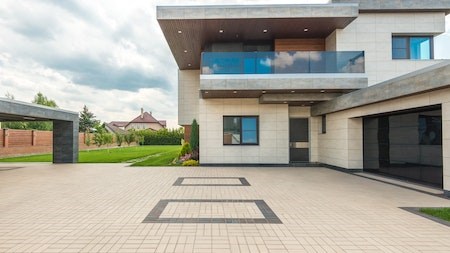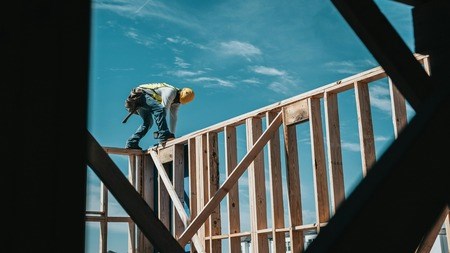Reality TV has cultivated some misleading perceptions around how long it takes to build a home. Homeowners need to be aware that it will take more than the few days or weeks many reality shows portray. In fact, most building projects take at least six months depending on how ambitious the plans are and how many unexpected delays arise.
WATCH : What to consider before building a home.
Regional Director and CEO of RE/MAX of Southern Africa, Adrian Goslett, explains that the key to building your own home quickly and efficiently comes down to being well-prepared before starting the project.
“This means doing your homework. There are some key aspects that could set you back if you haven’t considered them before tackling the project. For starters, delays often start when submitting the building plans to your local council. Depending on which local authority you submit your plans to, as well as their backlog of plans awaiting approval, you can expect to wait for anything from 2 to 8 weeks after submission, so you want to make sure the plans have the best chance for approval first time around by getting a professional and experienced architect to assist you.”
Goslett also highlights the importance of partnering with reputable contractors too, as their work-ethic and quality checks can make or break your timelines. The size of the building, the complexity of the architectural design, the materials you’re planning on using, and how readily available these materials are (import delays can often pop up unexpectedly), will also impact how long it takes to complete the build.
“Running out of funds is one of the most common reasons for unnecessary delays,” says Goslett. To prevent this, Goslett emphasises the importance of factoring in all costs (including the cost of the land, the home’s finishes, professional fees, water and electrical connections, municipal rates, as well as any additional costs, such as the cost of renting while you build) to make sure you don’t have to hit pause mid-build while you save up the money to afford the rest of the building project.
“It is also important to choose a time of the year when you’re likely to have the least rain and more dry days, as weather can play a big role in the building schedule. Keep in mind that many construction companies and building suppliers might also close for the festive season, so try to time your building scheldule before or after December. To avoid upsetting the neighbours, only tackle any noisy or messy construction work between 8am-5pm on weekdays,” says Goslett.
“Delays might also occur if you suddenly require alteration or adaptations to your plans mid-build. This may or may not require you to resubmit plans for approval, which could lead to long waiting periods,” he warns.
There are many things, both expected and unexpected, that can end up pushing the timelines on your new house. However, Goslett advises that knowing about these factors can help you either avoid them or prepare contingency plans. “While some can be avoided, other delays will simply have to be worked through as they arise. If building your own home sounds like an exciting project you want to tackle, speak to your local agent to explore what plots are available in your price range,” Goslett concludes.
Writer : Kayla Ferguson





